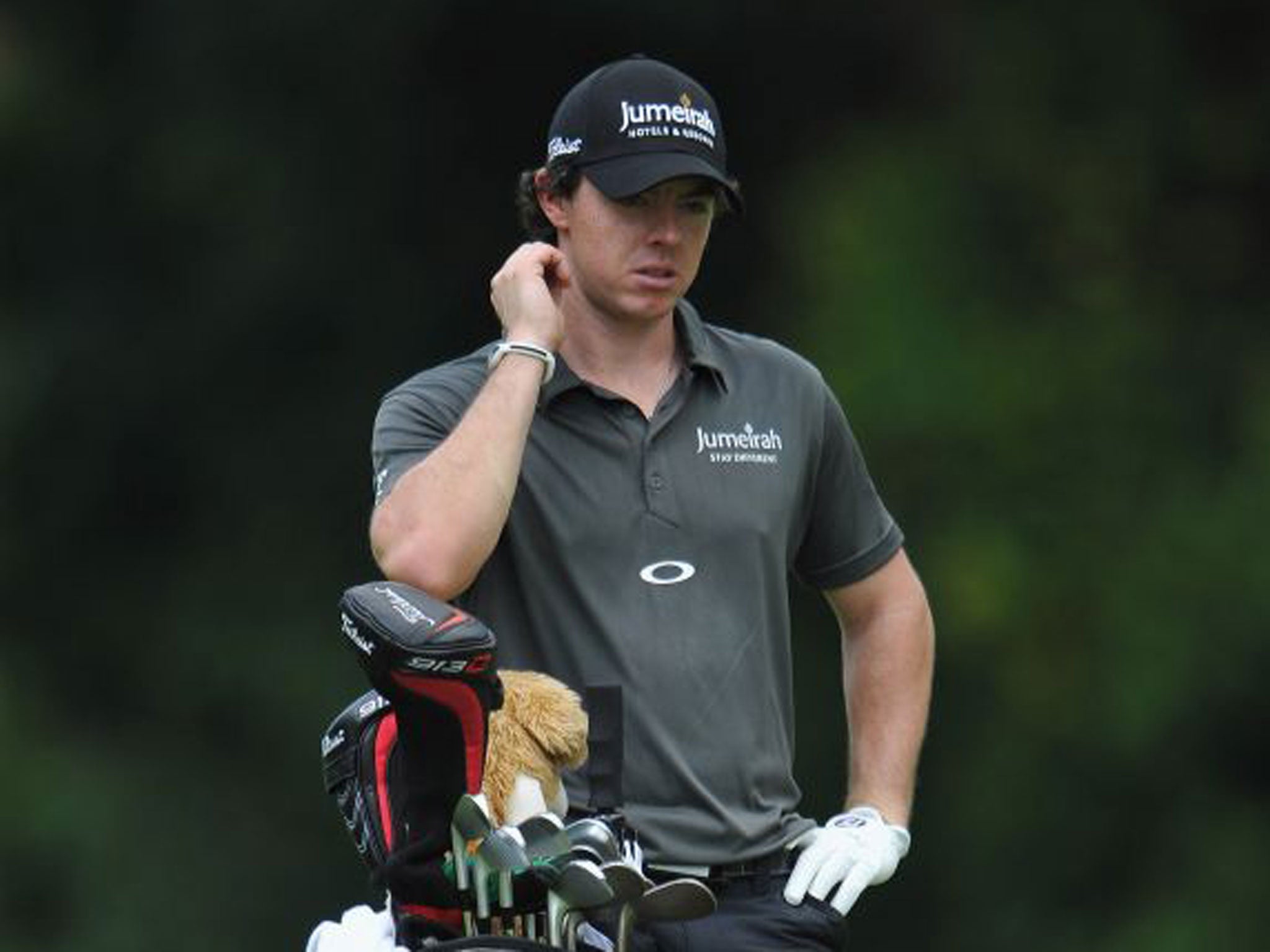Kevin Garside: Rory McIlroy has one skill to learn if he is to avoid the Irish question: silence
Golf needs McIlroy in Rio more than he needs an Olympic medal

Your support helps us to tell the story
Our mission is to deliver unbiased, fact-based reporting that holds power to account and exposes the truth.
Whether $5 or $50, every contribution counts.
Support us to deliver journalism without an agenda.

Louise Thomas
Editor
How sad that in the year 2013 a young sportsman should feel so acutely the sensitivities of faith and citizenship. Yet this is the desperate territory Rory McIlroy is asked to negotiate, a Catholic boy from Belfast, who played his amateur golf for Ireland yet travels on a British passport. It is an irony of sorts that golfballs were among the weapons discharged at police during rioting by loyalists in Belfast enraged at the lowering of the Union flag at City Hall.
You cannot be further removed from the pit of Northern Ireland's socio-political upheaval than the top of Australia's second tallest building. Yet, even strapped to the roof of the Sydney Tower, there was no protection from the echoes whistling in the wind following McIlroy's latest pronouncement on Olympic representation, or the lack of it.
McIlroy spent much of last week on the Sydney tourist beat with girlfriend Caroline Wozniacki ahead of her involvement in the Apia International tennis tournament. The pictures posted on Twitter looked great, though it wasn't clear if the gritted teeth revealed more than 1,000 feet up were instinctive protection against the gusts or the hornet's nest stirred back home by BBC Northern Ireland's broadcast of an hour-long special on McIlroy's annus mirabilis of 2012.
The programme delved insightfully behind the scenes, and what a year it was: the blistering run of top-five finishes at the start, the missed cut dramas of May and June and the high peaks of Augusta and September, when he conquered his second major by eight shots at the PGA Championship, won back-to-back tournaments at the FedEx play-offs and helped Europe fashion the greatest Ryder Cup fightback in history. There was much to admire across the piece and McIlroy talked about a lot of things but only one headline resulted.
McIlroy did not initiate the Olympic debate. He never does. It is the business of the journalist to provoke a response. The right to put the question is central to our civil liberties. McIlroy just has to be sharper if he wants an easier life.
There is a voice out there that might shine a light across the minefield of Olympic orientation through the counter-intuitive medium of silence. It belongs to Barry McGuigan, the industry expert on negotiating that tricky stretch between sport and politics on the Emerald Isle. As the Irish Independent detailed following McIlroy's equivocation on which banner he will march beneath, the Union Jack or the Tricolour, 1970s Belfast was a different order of murderous chaos, notwithstanding the present eruptions scarring the city.
McGuigan's story is one of the richest in British sport. Central to it was his sensitive and skilful negotiation of the paramilitary hellfire that tore the North apart. He represented Ireland as an amateur in the Olympic Games yet wore with pride the Lonsdale Belt of the British featherweight champion as a pro. He was fortunate in a sense that he was able to choose Northern Ireland in the Commonwealth Games. Were that option open to McIlroy in Brazil it would solve all his problems. In the absence of that solution, perhaps the selectors in Dublin could make the decision for him by relinquishing their claim via the ancient link of the Golfing Union of Ireland, the oldest association of its kind in the world.
McIlroy's association with the union is deep-rooted since the nine clubs that formed it in 1891 were from Ulster. The union, now based in Kildare, helped fund his amateur career. The pull is strong. So is the power of the passport under the protection of which he travels the world. It is British. That ought to settle all arguments. But as long as the Irish court him, even passively by saying nothing, allowing the powerful connectivity of his Catholic faith to flavour the issue by association, then the difficulty will remain.
A call to McGuigan on Saturday night was instructive. He was on the way to dinner with friends hoping to tap into his well of motivational lava for London Irish, the rugby Premiership's punchbags of 2012. While McGuigan will talk all day about his own experience as a sporting totem on the high wire of Irish social and political convulsion, he declined to speak about McIlroy's dilemma. The question was legitimate, since any light McGuigan might shine on the issue would be uniquely relevant. The answer, though death to the headline writer, was smart.
No comment. Nothing. Not a peep. Thanks, Barry, enjoy your evening. In staying silent McGuigan unwittingly gave McIlroy his answer the next time the issue is raised. In the meantime a solution should be sought sotto voce behind the scenes.
One thing is certain: golf needs McIlroy in Rio more than he needs a medal. Golfing gold is mined four times a year in the majors. Olympic participation is a mechanism for growing the game globally, particularly in South America, a great, uncharted continent of opportunity.
McIlroy is one half of golf's big sell, alongside Tiger Woods. Thank heavens he wasn't born Catholic in Belfast.
Subscribe to Independent Premium to bookmark this article
Want to bookmark your favourite articles and stories to read or reference later? Start your Independent Premium subscription today.
Join our commenting forum
Join thought-provoking conversations, follow other Independent readers and see their replies
Comments